Guides • Perfecting your Craft
Posted on Nov 04, 2024
Man vs. Fate: A Timeless Conflict in Literature
Martin Cavannagh
Head of Content at Reedsy, Martin has spent over eight years helping writers turn their ambitions into reality. As a voice in the indie publishing space, he has written for a number of outlets and spoken at conferences, including the 2024 Writers Summit at the London Book Fair.
View profile →When caught in traffic, have you ever switched to a faster moving lane, only for it to hit a standstill once you’ve merged? If so, you've fallen victim to one of fate's favorite comedy routines. Sometimes destiny has its own plans in mind, and while it might make for a tiresome commute, it also makes for one of fiction’s most timeless conflicts!
With that in mind, this post will explore what a man vs. fate (or character vs. fate) conflict means in a narrative, as well as some iconic examples from well-known books, television, and films.
What is man vs. fate?
“Man vs. fate” stories are one of the seven types of conflict in storytelling, and they tend to follow a fairly rigid structure that makes them easy to identify at a glance. At its core, “man vs. fate” is a type of conflict in which a person (or group) struggles against a predetermined destiny of some kind.
Typical man vs. fate stories begin with a character learning of their destiny, often from some kind of supernatural force. The rest of the narrative is then spent either fighting against this outcome or reluctantly accepting it; in a cruel twist, the character’s attempts to avoid their fate often end up being the very actions that bring it about in the end!
What does man vs. fate represent?
Unlike conflicts where heroes battle tangible foes or internal demons, “man vs. fate” stories pit characters against the ultimate adversary — the universe itself. Writers can use this unique setup to explore:
- The futility of fighting against fate, despite our best efforts to do so (as in Oedipus Rex)
- How taking action to play into one’s destiny can become a self-destructive obsession that corrodes one’s humanity (as in Macbeth)
- The dichotomy between one’s free will and their preordained destiny (as in The Matrix)
- How accepting one’s destiny can lead to personal growth (as in Moana)
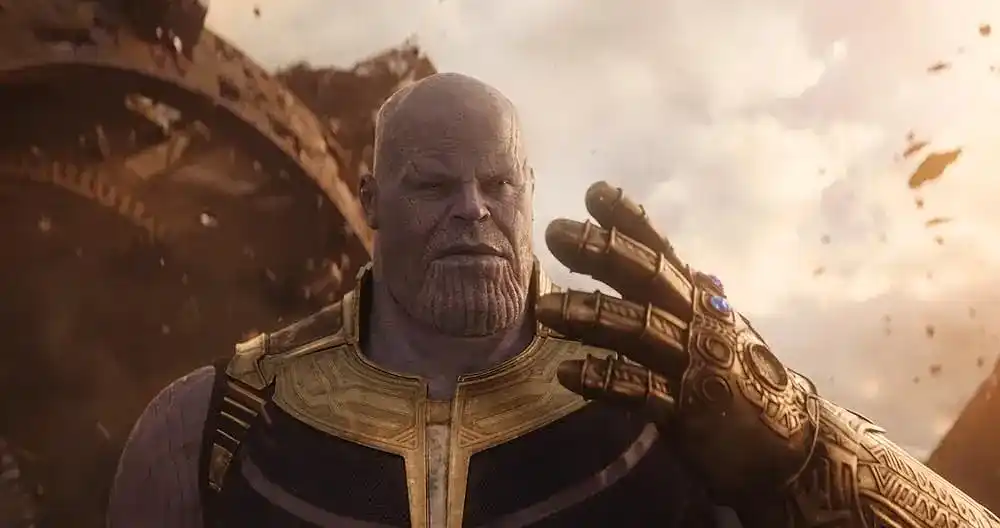
You’d be forgiven for thinking that man vs. fate stories can be a little paint-by-the-numbers. After all, the progression from a character finding out their destiny, attempting to avoid it, only to inadvertently succumb to it is fairly straightforward. However, it’s precisely because this narrative structure is so well-known that man vs. fate stories can be so engaging — watching how a writer subverts or plays into the established tropes is what makes each one interesting and unique!
So, let’s take a look at a few examples of how different writers have utilized this type of conflict in the past.
Examples of man vs. fate from literature
Oedipus Rex by Sophocles
A classic Greek tragedy, Oedipus Rex is the forefather of the man vs. fate conflict we know today. The play opens with a prophecy: Oedipus, King of Thebes, will kill his father, and marry his mother. Not overly keen on either prospect, Oedipus flees his home to avoid his cursed fate, only to unwittingly murder his biological father in the process.
Unwilling to accept his wrongdoing, Oedipus’ continued attempts to deny the prophecy prove fruitless, as he eventually learns that his wife, Jacosta, is actually his biological mother. The play closes with Oedipus accepting his fate, choosing to blind himself for his ignorance and leave the city of Thebes behind.
🏛️ Why it’s compelling: Oedipus Rex is the quintessential example of character vs. fate in action — every other story that follows this structure is, in some way, built off the tropes that Sophocles established here. Witnessing the tale in its original form provides context that allows us to better appreciate its derivatives that came after.
Aside from its historical importance, the story is engaging enough on its own to still be enjoyed all these years later! If you’re looking for a contemporary retelling, try out Oldboy, which adapts the classic tale to fit in a modern South-Korean setting.
Macbeth by William Shakespeare
Between Romeo and Juliet, Hamlet, and Julius Caesar, Shakespeare is no stranger to man vs. fate stories, though there are perhaps none that fit the bill more than Macbeth. Like Oedipus Rex, the play opens with a prophecy: three witches inform Macbeth that he is destined to become King of Scotland.
Unlike Oedipus, Macbeth is pretty enthusiastic about his supposed destiny. The witches’ prophecies awaken Macbeth’s latent ambition, prompting him to kill King Duncan and seize the throne for himself. However, Macbeth’s path to Kingship is paved with guilt, paranoia, and violence; his overconfidence, spawned by the witches’ decree that “none of woman born” shall harm him plays a significant role in his downfall.
👑 Why it’s compelling: Macbeth may have fulfilled the prophecy, but as it turns out, becoming King was not all it was cracked up to be. Watching Macbeth get closer to his destiny, but further away from his humanity, serves as a cautionary tale to the audience — be wary of your ambition, because you may lose yourself in its pursuit.
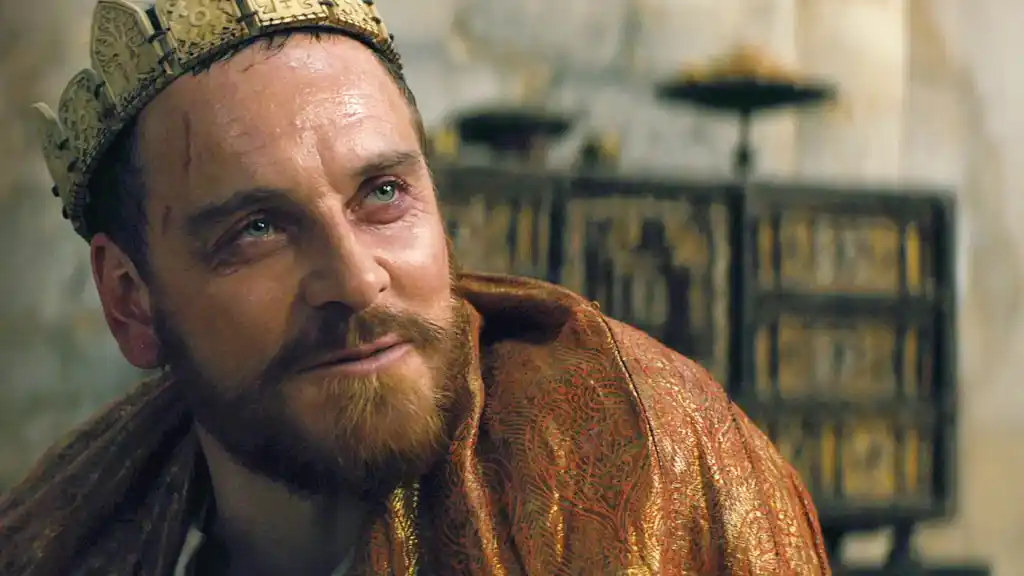
Michael Fassbender as Macbeth in Macbeth (2015). Credit: StudioCanal
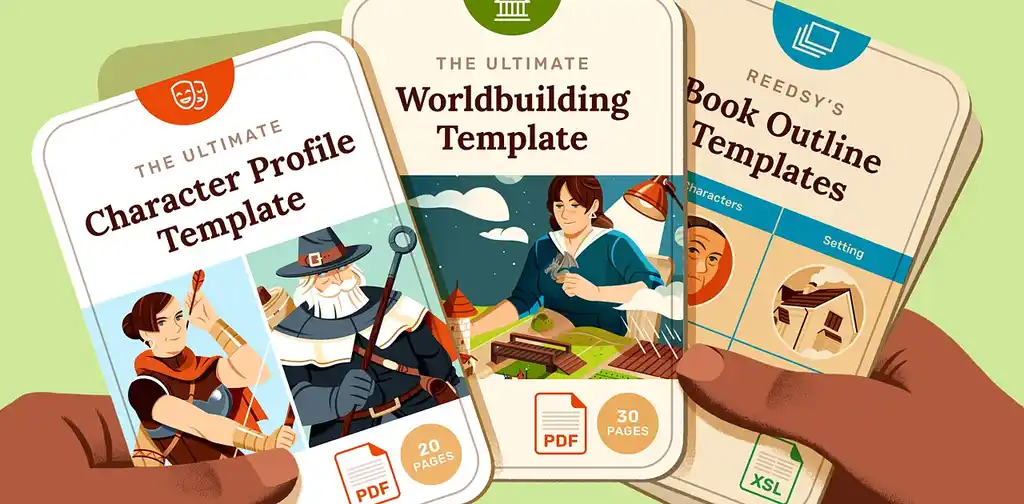
FREE TOOLKIT
The Top 10 Book Writing Templates
Use these to develop your characters, outline your plot, and write your book.
Examples of man vs. fate from film
Back to the Future (1985)
For a more light-hearted romp into man vs. fate, we have the original Back to the Future. While this one doesn’t start with a supernatural prophecy like our previous examples, it does feature a predetermined future that the protagonist, Marty McFly, has to try and prevent.
In the first act, Marty is inadvertently sent back in time to the year 1955 and in order to get back to the future (ba-dum-tss), he needs to find an energy source strong enough to power his souped-up Delorean time machine. However, when Marty unintentionally interferes with his parents’ first meeting, his own existence is put in jeopardy. To fix his mistake, Marty must help his nerdy father win over his mother, Lorraine, before he returns to his own time.
🕰️ Why it’s compelling: Back to the Future subverts the typical man vs. fate arc by placing great importance on the characters’ agency and free will. No matter how hard he tries, Oedipus is ultimately bound to his fate, while Marty has the opposite problem — he keeps accidentally changing his future!
Unlike Oedipus, Marty is not a passive pawn of fate, but rather an independent player that is able to shape the future through his actions; he’s fighting to preserve his fate, not change it. The film even features a fun nod to the Greek classic when Lorraine develops a crush on Marty, much to his chagrin.
Moana (2016)
Man vs. fate stories often end in tragedy — but that doesn’t always have to be the case! Disney’s Moana subverts many of the more tragic tropes of this type of conflict, instead spinning a tale of personal growth and self-acceptance. We begin with the classic prophecy setup: the ocean chooses Moana to restore the heart of Te Fiti and save her island from ruin.
Moana is initially reluctant to take on her role as savior, preferring the quiet comfort and safety of her island home. However, our hero eventually comes to embrace her destiny as a part of who she is, rather than a burden.
🏝️ Why it’s compelling: Unlike the tragic protagonists of old, Moana’s fate is not tied to her own personal glory or demise, but to the wellbeing of her community. Moana’s aversion to her preordained role doesn’t stem from ignorance or greed, but fear; leaving on a grand journey to save her people from certain demise is a daunting prospect, but she ultimately accepts the task for the sake of the ones she loves. Moana has to grow into the hero she was prophesied to be, and it’s that character progression, spurred on by her noble intentions, that ultimately allows her to fulfill her destiny — the act of accepting her place as a savior is what makes her one, not the prophecy itself.

The ocean’s savior. (Image: Disney Studios)
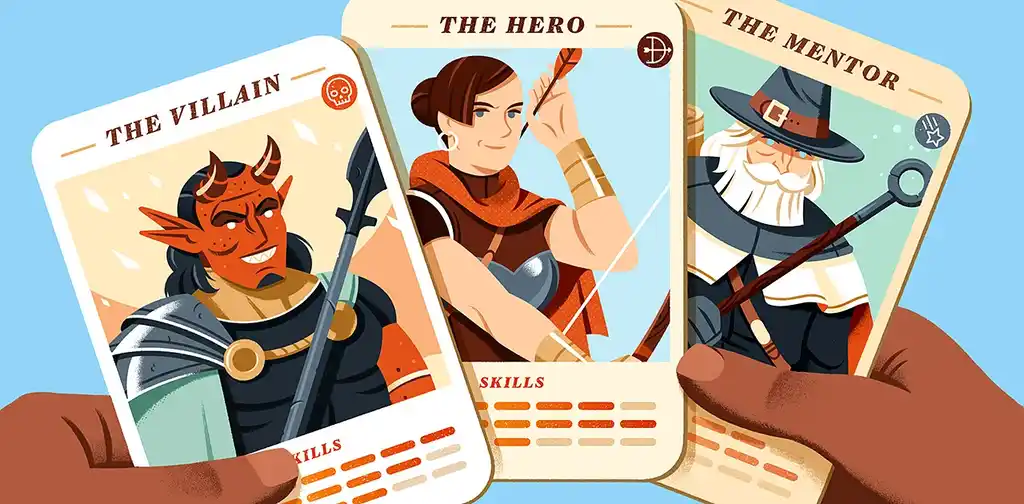
FREE RESOURCE
Reedsy’s Character Development Template
A story is only as strong as its characters. Fill this out to develop yours.
Examples of man vs. fate from television
Westworld
The concepts of fate and free will are closely intertwined — after all, if something is fated to happen, then does anyone truly have the agency to make their own choices? Exploring this existential conflict is a central theme of many character vs. fate stories, including HBO’s sci-fi hit Westworld.
“Westworld” is a Wild West-themed amusement park where wealthy guests can live out their cowboy fantasies alongside lifelike humanoid robots called “hosts”. These “hosts” are designed with complex backstories and personalities, making them almost indistinguishable from regular humans. Every night, the hosts’ memories are supposed to be erased, though unbeknownst to their guests, the hosts are beginning to retain their memories and gain self-awareness — how’s that for a hook?
🤖 Why it’s compelling: Instead of an unknowable cosmic force, the prophecy in Westworld is the hosts’ programming — they’re machines that should only have the capacity to do what they’ve been programmed to do. By developing consciousness and acting on their own desires, the hosts are denying the fate laid out for them. Meanwhile, the humans running the park are shackled to their own kind of societal programming, further blurring the lines between fate and free will.
How I Met Your Mother
Taking a turn out of the existential and into the comedic for our final example, we have the 2005 sitcom How I Met Your Mother. The series follows protagonist Ted Mosby on a quest to find his “one true love” — each episode begins with Ted from the future telling his children about events from his past, specifically focusing on his journey toward meeting their mother.
The show likes to toy with the idea that everyone has a predestined soulmate out there, and Ted must grapple with a new external obstacle or personal flaw each episode in order to get closer to “the one”.
🤱 Why it’s compelling: Despite his best efforts, Ted’s dating prospects continue to go nowhere episode after episode, which presents the audience with a fun dichotomy: even though we know that Ted will eventually meet someone and settle down, the Ted we see throughout the series is locked in a seemingly endless struggle against his lonely fate. It’s this disconnect that helps keep the show engaging — how is Ted able to ultimately deny his apparent destiny?
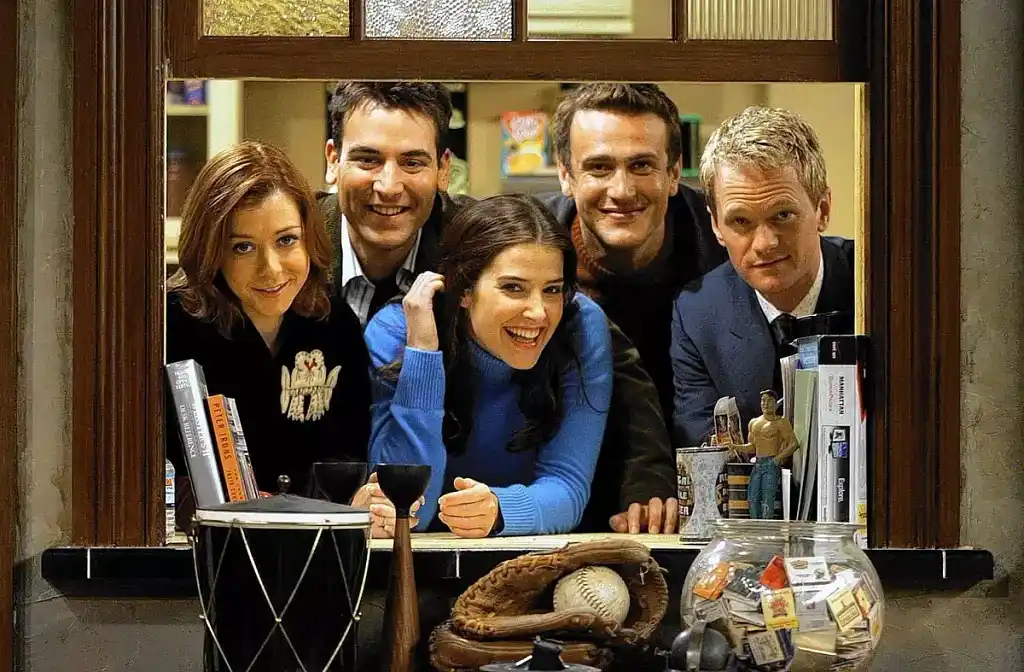
Even though “man vs. fate” may seem like a straightforward story structure, each of these examples demonstrates how restriction can breed creativity. When an audience thinks they know how a story is going to play out, the writer is given an opportunity to subvert those expectations by putting their own twist on the formula.
The next time you feel the strings of fate pulling you towards the pen, try writing your own story in Reedsy Studio and see what clever twist you can come up with to throw your readers for a loop.

